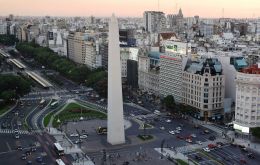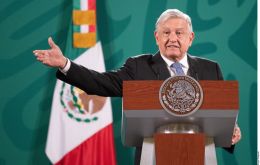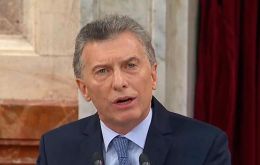MercoPress. South Atlantic News Agency
Tag: The Economist
-
Tuesday, December 30th 2025 - 10:55 UTC
Which countries improved the most this year? Argentina and Syria for The Economist

The Economist has chosen two countries for outstanding/impressive achievements during 2025. A controversial selection based on particular criteria to measure them, but since The Economist is a global leading voice, very knowledgeable and respected, in international affairs it is also a great merit for those countries named.
-
Thursday, July 11th 2024 - 19:17 UTC
Buenos Aires the best city in the region, The Economist finds

Buenos Aires was once again picked by The Economist as the most liveable city in South America according to the outlet's usual scale measuring environmental, cultural, and infrastructural issues in addition to stability and medical care. The Argentine capital topped the list for the third year in a row, standing out for its highly regarded UBA (University of Buenos Aires) among other perks.
-
Thursday, February 15th 2024 - 22:16 UTC
The Economist: Uruguay's democracy is one of the strongest in the world

Uruguay has been recognized as the only full democracy in South America and the leading democracy in Latin America, according to the Democracy Index 2023 compiled by the Economist Group and published by The Economist magazine.
-
Friday, April 14th 2023 - 16:23 UTC
The Economist: “Uruguay is losing its reputation as a success story in Latin America”

“The Economist” published an article on Thursday stating that Uruguay's reputation as a success story in the region is diminishing. Initially, the British media outlet referred to Uruguay as a “model country” and highlighted its achievements, such as obtaining 95% of its electricity from renewable sources, legalizing same-sex marriage, and allowing residents to buy cannabis from pharmacies. Uruguay was also recognized as the most peaceful and least corrupt country in South America.
-
Thursday, February 10th 2022 - 23:49 UTC
Uruguay is the only full democracy in South America, The Economist says

The Economist published on Thursday its Democracy Index for 2021, in which Uruguay was ranked 13th, within the spectrum of “full democracies”, being above the 8 points awarded by the ranking.
-
Tuesday, June 1st 2021 - 07:23 UTC
The Economist calls Mexican president “a false messiah” and appeals to vote against him next Sunday

On Sunday next week, Mexicans will be electing hundreds of legislators and other state and local officials with the election attracting the attention of the latest edition of The Economist, which describes president Andres Manuel Lopez Obrador and his policies as dangerous populism. The leading piece of The Economist has been met with outrage and ridicule in Mexico since the magazine insists Mexicans should absolutely not vote for Morena, the party of the incumbent president.
-
Friday, February 5th 2021 - 08:42 UTC
Uruguay, one the very few “full democracies” in the world, The Economist

Uruguay leads as one of four full democracies in the Americas, according to the Democracy Index 2020, published by The Economist. Uruguay scored 8,61 points out of a possible 10 and ranked fifteenth at world level, while the other “full” democracies in the region are Costa Rica, 8,16; Chile, 8,28 and Canada with 9,24 points.
-
Saturday, November 23rd 2019 - 09:51 UTC
The Economist and Chile: the painful birth of a different country

In 2014, Michelle Bachelet a Socialist swept into Chile’s presidency for a second time on a program of radical reform of tax, education and pensions. She also aspired to enact a new constitution that would guarantee “more balance between the state, the private sector and society”, as she told your columnist over tea at the Moneda presidential palace. She argued that her “struggle against inequality” was the last chance to deal with discontents that, if neglected, could push Chile towards populism.
-
Saturday, August 10th 2019 - 06:29 UTC
The Economist on Mauricio Macri's reelection chances in Argentina

Ahead of Sunday's primaries' mandatory vote, The Economist published the following on Argentine president Macri's chances of reelection, in what seems a very tight competition with Kirchnerism.
-
Tuesday, June 25th 2019 - 09:51 UTC
The Economist: “In Argentina, the IMF has been neither toxic nor triumphant”

“What good is it to throw a man ten feet of rope if he is drowning in 20 feet of water?” asked Kenneth Rogoff, former chief economist of the IMF, to The Economist 15 years ago. His question still bothers the institution he used to advise.
